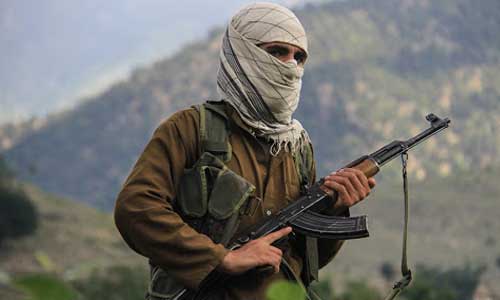In the past few days, Pakistan has invited key members of the Taliban’s Qatari office to Islamabad. Pakistani Foreign Minister Shah Mahmood Qureshi said that the Taliban were invited to discuss the peace process in Afghanistan and the start of intra-Afghan talks. To one’s surprise, Pakistan had imposed sanctions on a number of Taliban leaders – including Mullah Abdul Ghani Baradar who headed the delegation – under the pressure of international organizations, including the Financial Action Task Force. Imposing and then lifting sanctions on the Taliban by Pakistan have specific meaning. Pakistan seems to be intentionally trying to show how much significance the Taliban carry for that country and have an important position deep in Pakistan’s strategy.
By inviting the Taliban leaders just to negotiate with this terrorist group, Pakistan is seeking to strengthen the Taliban’s international position and give it further legitimacy. Before signing a peace agreement with the United States, the Taliban were recognized as a terrorist group as international organizations blacklisted many of their leaders. But, it has promoted to a political group or even to the level of a state in exile. To view the Taliban’s current status to that of few years back, it is hardly comparable as the Taliban have gained international attention to an unimaginable extent.
Although the US, mainly its envoy Zalmay Khalilzad, facilitated the international presence of the Taliban through negotiations in Qatar and signature of agreement with the group, Pakistan played the key role. According to sources, the ISI had a secret deal with the US – from the earliest years of the Afghan jihad and the rise of jihadi groups during the Soviet occupation of Afghanistan – based on which Pakistan would safeguard the US’ interests in the region. On its part, the US had given Pakistan carte blanche in Afghanistan. Since the extension of its presence in Afghanistan under the pretext of fighting against the country’s occupation, Islamabad had carried out no mission except for destroying the country and reinforcing the militants.
Regional countries and Afghanistan’s neighboring states, including Pakistan, have been monitoring the crisis and its continuation in Afghanistan for more than four decades and have no other plans. The continuation of crisis and destruction of Afghanistan as well as lack of an authoritative government in the country are deep in Pakistan’s strategic plan. Taliban are practicing what the jihadists did during their time. Currently, the Taliban are involved in killing and destruction in the name of jihad as the jihadists as jihadists did for the same reasons. The ideology of jihad has not faded for the extremist and dogmatist individuals and it still leads to enormous destruction in Afghanistan. However, this cycle of destruction may lose its sanctity due to the spread of information and speed of news circulation. Therefore, Pakistan seems to be looking for an alternative way for the continuation of conflict and crisis in Afghanistan.
Legitimizing the Taliban as well as strengthening terrorist groups under other names can both accelerate this destructive process and prolong for years after the Taliban. If the Taliban, as a reactionary group, succeed in forming a dictatorial regime in Afghanistan, the crisis will certainly continue. Even if the Taliban fail to form a state, it will at least weaken the current government and the existing political system. Parallel to this process, other terrorist groups may emerge that might be much more violent than the Taliban – this will be exactly what intelligence agencies covered behind the terrorist groups seek.
By inviting Qatari members of the Taliban to Islamabad, Pakistan, on the one hand, is seeking to show that it is not involved in equipping and financing terrorism, and, on the other hand, gain international legitimacy for this group. Therefore, it facilitates their travel to Tehran, the capital city of Iran, and some other regional states.
Home » Opinion » Pakistan and Legitimizing the Taliban
Pakistan and Legitimizing the Taliban
| Mohammad Hedayat Translated by Shir Husain Rahemi

